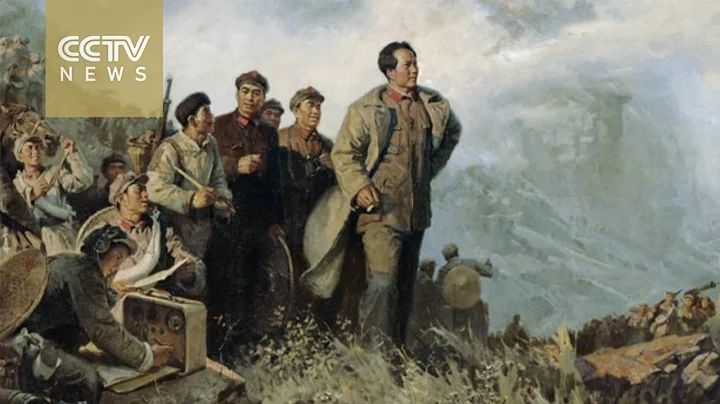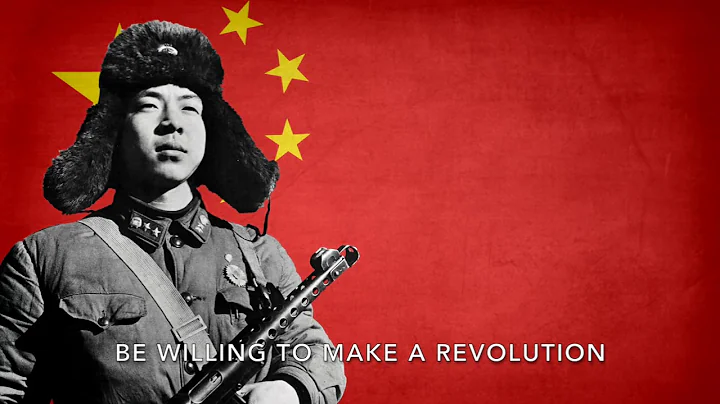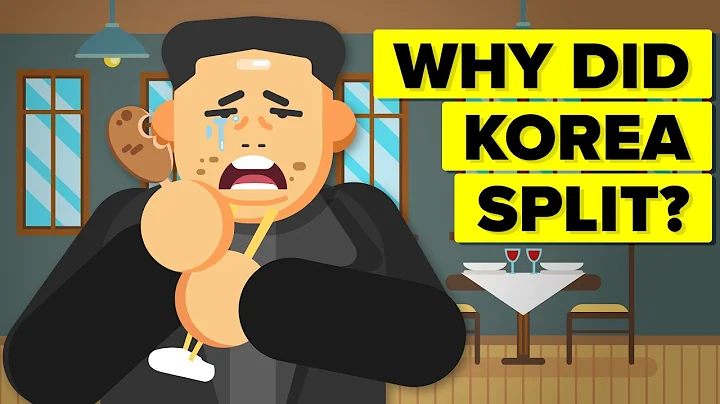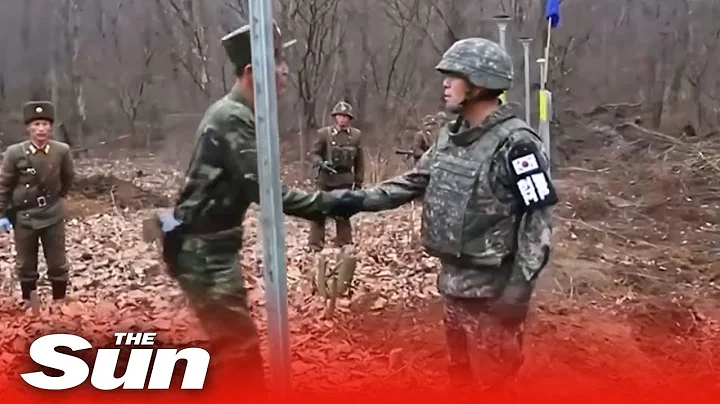
On October 24, 1936, the Thirty Red Army began to cross the Yellow River to the west to implement the Ningxia campaign plan. Then the Ninth Red Army and the Fifth Red Army crossed the Yellow River in sequence; on November 10, the Central Committee of the Communist Party of China telegraphed the crossing of the Yellow River. The three armies formed the West Route Army and established the West Route Army Military and Political Committee.
Xiong Guobing serves as a member of the Military and Political Committee of the West Route Army and the director of the Logistics Division of the General Logistics Department. The five standing committee members of the West Route Army Military and Political Committee are: Chen Changhao, Xu Xiangqian, Zeng Chuanliu, Li Te, and Li Zhuoran. The other six committee members are: Xiong Guobing, Yang Keming, Wang Shusheng, Li Xiannian, Chen Haisong, and Zheng Yizhai.

The West Route Army was defeated and retreated to the Qilian Mountains. Commander-in-chief Xu Xiangqian and political commissar Chen Changhao left the team and returned eastward to Yan'an . A working committee composed of Li Zhuoran, Li Xiannian, Li Te, Zeng Chuanliu, Wang Shusheng, Cheng Shicai, Huang Guobing, Huang Chao and Xiong Guobing presided over the work.
Xiong Guobing's guerrilla group composed of agency personnel was intercepted by the enemy and most of them died. He rode out from the enemy group alone on his horse, and the horse was killed. Xiong Guobing only escaped death after falling into a ten-thousand-year-old snow pit.

While chasing the troops, Xiong Guobing encountered the cavalry of Ma Jiajun and was captured. Ma Jiajun went to Soushan and locked him in a yurt of people from the Yugu tribe. The Yugu leader let Xiong Guobing go and pointed him in the direction of escape.
Going west along the Qilian Mountains in the direction pointed by the Yugu leader, Xiong Guobing was barefoot and his legs and feet were frostbitten. He endured the pain and hunger and came to Jiujiayao, a remote mountain village in Nanshan, Jiuquan. Farmer Uncle Zhang took him in and cured him of frostbite.
After recovering from his injury, Xiong Guobing came to Jiuquan City, where he helped others during the day and settled behind the statue of Wuye Temple at night. JiuquanThe city is full of Ma Jiajun soldiers searching for Red Army . They list Xu Xiangqian, Chen Changhao, Xiong Guobing and others as the "red bandit chief offenders", offering a reward of 1,200 yuan for their capture alive and 600 yuan for their heads.
Xiong Guobing couldn't leave even if he wanted to, and it was difficult to hide when he stayed. Finally, he was introduced to someone and married Bai Yulan, the wife of the late Sichuan fellow named Tang. He changed his name to Zhang Bingnan and made a living by setting up a stall.

- In fact, Xiong Guobing had two wives before.
’s first wife’s surname was Zhao. She was married through family matchmaking when she was 16 years old, and they have two sons. Xiong Guobing is from Xiongjiawan, Zhuyu Township, Wanyuan County, Sichuan. When he was ten years old, his father adopted him from Xiong Bangjie, a resident of Xiongjiaping, a nearby village, because of poverty.
Xiong Bangjie and his wife are simple and kind-hearted, and they acted as matchmakers for him to marry a girl from the Zhao family. However, Xiong Bangjie and Xiong Bangjie died young. The local Xiong family tried every means to make things difficult for Xiong Guobing because of their clan values. In desperation, he took his wife back to Xiongjiawan and made a living by working part-time jobs.

In December 1932, Liu Zicai of the Red Army found Xiong Guobing, known as the "Bashan Warrior". Xiong Guobing followed Liu Zicai across mountains and ridges to investigate the enemy's situation, providing important intelligence for the Red Army's entry into Sichuan.
In early February 1933, upon the recommendation of Mang Jixun of the Sichuan-Shaanxi Provisional Revolutionary Committee and the introduction of Yuan Keke, Xiong Guobing joined the Communist Party and served as a member of the Provisional Committee. The First, Second and Third Sichuan-Shaanxi Workers, Peasants and Soldiers Congresses all elected Xiong Guobing as Chairman of the Sichuan-Shaanxi Provincial Soviet Government.
In the spring of 1935, the Red Fourth Front Army forcibly crossed the Jialing River and left the Sichuan-Shaanxi Soviet Area. The Sichuan warlord troops and the landlord "returning regiment" came back with a vengeance. Xiong Guobing's two sons were killed, and his wife Zhao starved to death.

His second wife is named Zhang Tingfu . She was originally the first women minister of Sichuan-Shaanxi Province . She was from Tongjiang, Sichuan. After joining the Red Army, she served as a bugler and a nurse in the general hospital. When the troops moved to Maoergai, the two became revolutionary partners with the care of the party organization.
Zhang Tingfu also joined the West Route Army; when the West Route Army broke through Linze City, the two were separated. Xiong Guobing had no time to find his wife, so he endured the pain in his heart and led the soldiers to break through the siege and break out of the siege.
After Zhang Tingfu was captured by Ma Jiajun, he escaped from death and settled in Gaotai . There was no more news between the two, and neither knew whether the other was alive or dead. Zhang Tingfu later remarried in Gaotai. After her husband passed away in 1960, she returned to her hometown of Tongjiang, Sichuan with her four daughters.

- "Hero of Bashan" Xiong Guobing died of hunger in his later years
Xiong Guobing lived by setting up a stall in Jiuquan and Magnolia. People in his hometown thought he had died, and they would pay homage to him every Qingming Festival.
In 1945, Xiong Guobing's family came to Yumen due to livelihood difficulties, and he found a job in the hospital as a signer. However, due to meager income, a family of five can only live in a cave dwelling in Xiheba.
At the end of 1948, they returned to Jiuquan. Although their life was miserable, Xiong Guobing still tried his best to persuade his wife to adopt Lan Xiangzi, the daughter of poor farmer Yang Zhanjiang, and a beggar girl.

After the founding of New China, Xiong Guobing was already over fifty years old. The People's Government learned of his experience in joining the Red Army and subsidized him with 50 silver dollars and 4 shi of wheat. After communeization, Xiong Guobing was already old, so he looked after orchards and wheat fields for the team.
Xiong Guobing did not use his past identity to ask for anything from the party and the government, nor did he return to the army. Instead, he settled down in the Hexi Corridor with peace of mind and became a farmer.
You must know that Xiong Guobing was once the chairman of the Sichuan-Shaanxi Soviet government, which led millions of people, and was also one of the important leaders of the West Route Army. However, in the Hexi Corridor, with the failure of the West Route Army, his life also changed. A major turning point has occurred.

In April 1959, Xiong Guobing was homesick. The civil affairs department gave him 300 yuan and a set of corduroy clothes to help him return to his hometown to visit relatives. The villagers welcomed him very warmly, and Xiong Guobing also wanted to stay in his hometown. However, because the boss had small feet, it was inconvenient to walk on mountain roads, and he was not used to rice from northern Sichuan. He also missed his son, so the old couple returned to Jiuquan.
There was a serious natural disaster in 1960. During the Spring Festival, the team ran out of food, so each member was given 8 pounds of kohlrabi for the New Year. Xiong Guobing's body was swollen from hunger and his legs and feet were cramped. Finally, he passed away in the pain of hunger and disease and was buried in a sand nest in Xujiawan, Quanhu Township.

Xiong Guobing served in the army for half his life and made great achievements for the Chinese revolutionary cause. Why did he not return to the army later, and why did he not make demands to the party and the government even in the most difficult times?
Someone once advised him to go to the government. Xiong Guobing said calmly: At that time, the party and the government gave us more than 21,000 people, but so many of them are gone. We who were the "leaders" are still alive, and we have no shame to see our fellow villagers. government.

Why Xiong Guobing is willing to live among the people is still a mystery; but this heroic hero who once made great achievements in the Chinese revolutionary cause should not be forgotten. Judging from his contribution to the revolutionary cause and the treatment he enjoys compared with his achievements, It's very unfair.
This also confirms Xiong Guobing’s infinite loyalty to the revolutionary cause and his noble feelings as indifferent to fame and fortune!





















